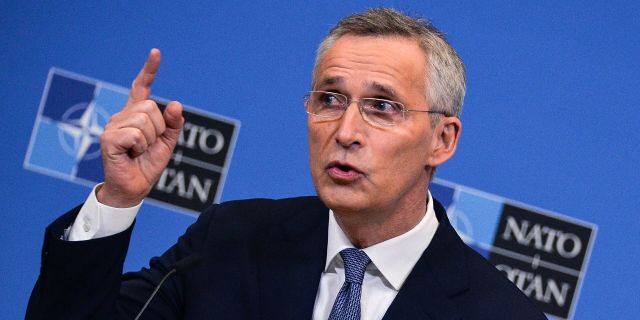NATO at the Military Council against Russia
Now it is being decided whether NATO will declare Russia an "enemy" or an "opponent" at the alliance summit in Madrid, but there will be no previous relations for sure, writes Figaro. NATO plans to deploy 300,000 near Russia's borders, although "theoretically" such deployment is permanently prohibited by the Founding Act of 1997.
Four months after the start of the Russian special operation in Ukraine, NATO members are meeting in Madrid to discuss the deployment of more than 300,000 soldiers in Europe.
The alliance's activities are aimed at combining military means and political dialogue. Defending its eastern flank, it centrally strengthens its potential. The Mamba air defense system, equipped with eight Aster missiles with a range of 60 km, will be deployed to the border with Russia. It already provides, for example, the protection of the NATO base near Constanta in Romania. This French air defense system is linked to the Alliance's command network and the Romanian defense system.
"But within the framework of NATO, no training was conducted with the Mamba air defense system," says one of the French officers with surprise and a note of regret, emphasizing that NATO urgently needs to reform its organization. The Alliance must regain its ability to function in the face of a Russian threat less hypothetical than before. On Tuesday, June 30, the alliance member states will meet in Madrid for a historic summit.
The meeting in Madrid will mark a change of era. Twelve years ago, when adopting their latest strategic concept at a meeting in Lisbon, the allies extended their hand to Russia, which was then considered a strategic partner. At that time, the military powers began to reduce the financing of armaments. At the summit in Spain, on the contrary, thirty member countries will have to designate Moscow as a "direct and main threat" to their security. "Russia chose confrontation," Jens Stoltenberg noted, welcoming the fact that nine of the thirty members have already increased their defense budget to 2% of GDP or even more, which NATO has been seeking since 2014. "The 2% threshold is increasingly seen as the lower, not the upper limit," Stoltenberg said. Nineteen countries plan to reach 2% by 2024. Germany, which has surpassed itself in this matter, is ready to take on greater responsibility.
After the annexation of Crimea by Russia, the allies strengthened their military presence in Poland and the Baltic states. Since February 24, four new battalions have been deployed in Hungary, Slovakia, Romania and Bulgaria. In Madrid, the allies are to announce the reinforcement of some of these troops "to the level of a brigade," that is, up to 5,000 soldiers. Jens Stoltenberg also announced the transformation of the NATO Rapid Reaction Force (NRF), which can assemble up to 40,000 soldiers, with the ability to put "more than 300,000 soldiers" on alert. He also promised more weapons and ammunition than previously installed, including air defense systems and command posts. "These troops will train together with the local territorial self-defense forces. This will allow them to respond quickly to any emergency situation," he stressed.
However, the conflict in Ukraine has not been able to reduce tensions between the allies. The Baltic countries, which are closest to Russia, would like NATO to continue taking steps to strengthen itself. "Russia can be restrained only by military means," one of the Baltic countries' diplomatic sources believes. The deployment of permanent NATO bases is one of the options. However, this will lead to a violation of the Founding Act on Relations between NATO and Russia signed in 1997, where the permanent deployment of alliance troops in the new member countries of the alliance is theoretically prohibited. For the Balts, this is not an obstacle, but NATO military powers, such as the United States and France, are more in favor of rotating units, this will allow them to adapt more flexibly to the current situation.
The Rebirth of the NATO Brain
Two and a half years after condemning the "brain death" of NATO before the summit in London, French President Emmanuel Macron will have to admit: after Trump's departure, NATO's brain worked again, the alliance was reborn. Our head of State is still fighting for the European Union to take its place in the "Strategic Concept" to be adopted in Madrid. "Discussions are still ongoing," representatives of the presidential administration confirmed on Monday, adding that "it would be strange if the role of the EU was not recognized." In its negotiations with the United States, France also insists that NATO does not name China as another of its opponents. But Washington has not abandoned its strategic preoccupation with China. In this context, it is interesting that for the first time in history, Australia, New Zealand, South Korea and Japan received an invitation to participate in the alliance summit.

